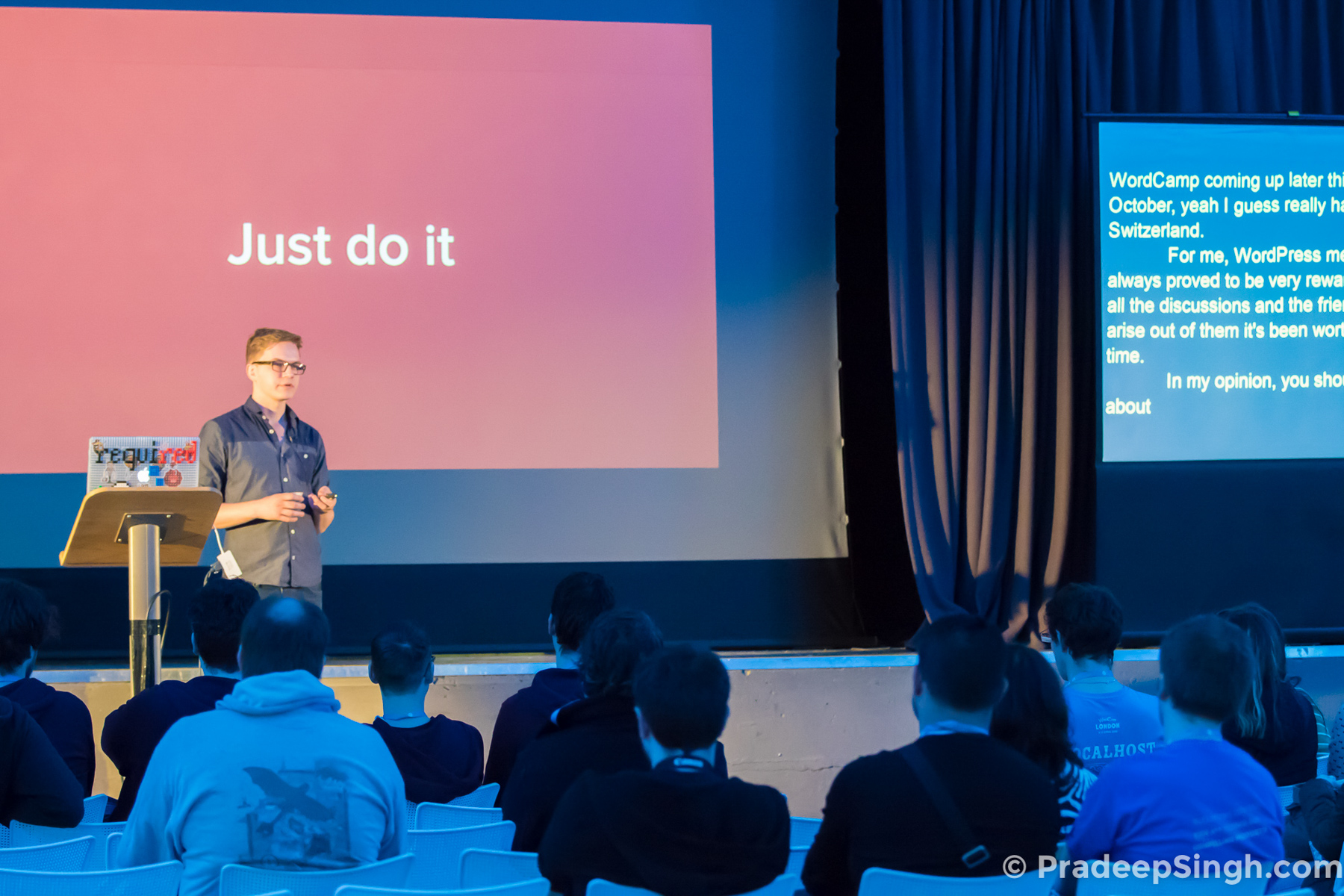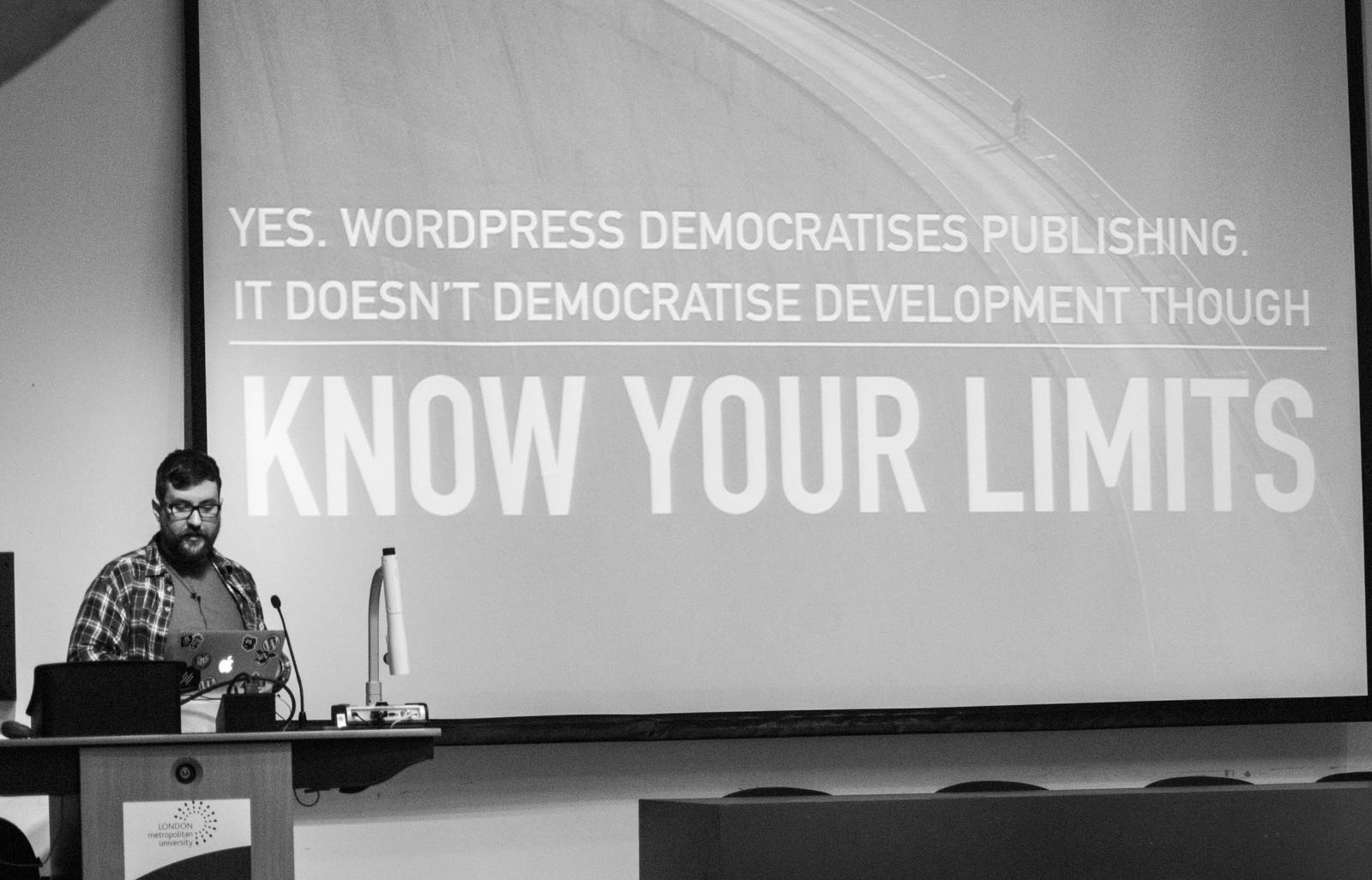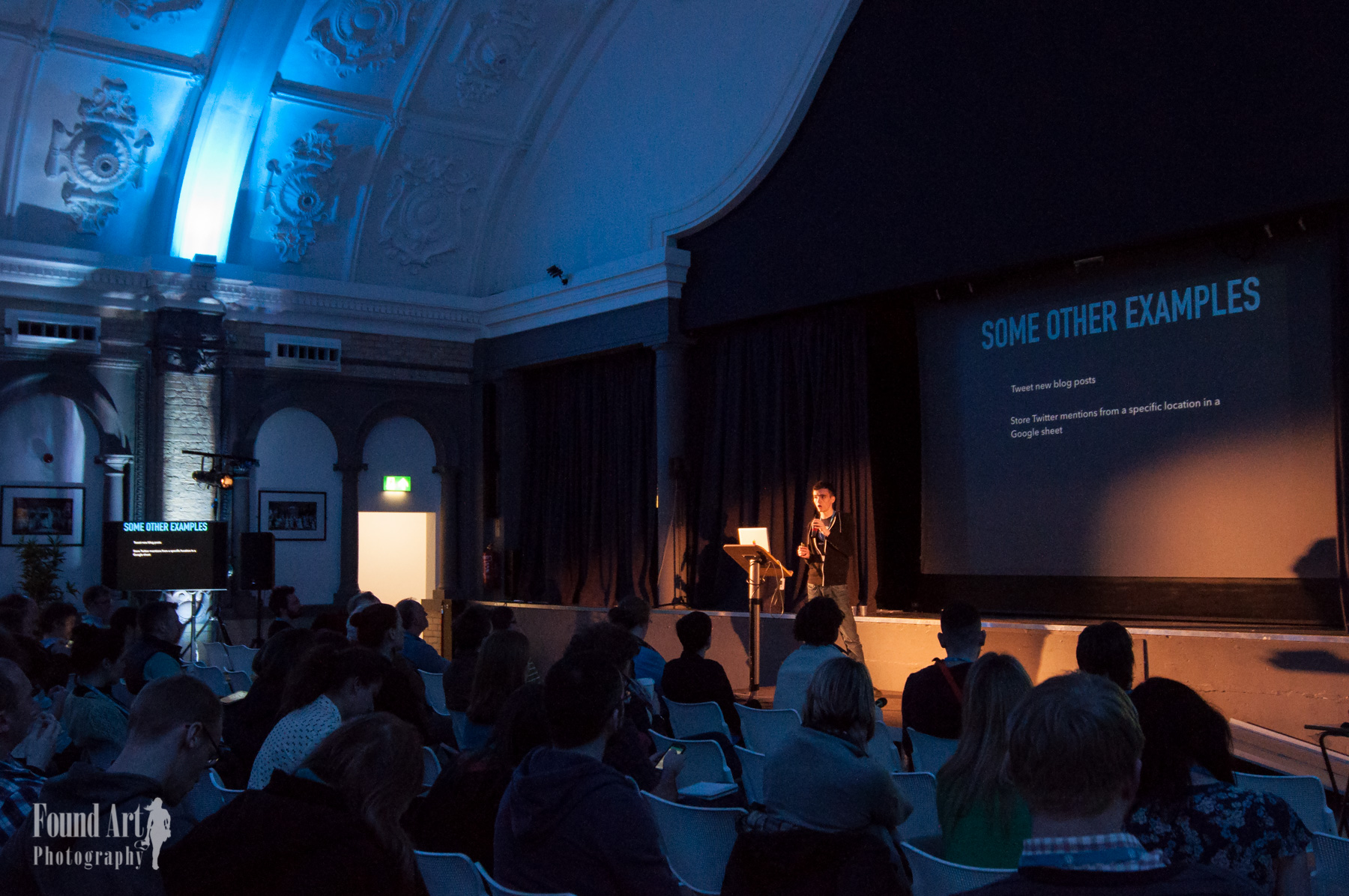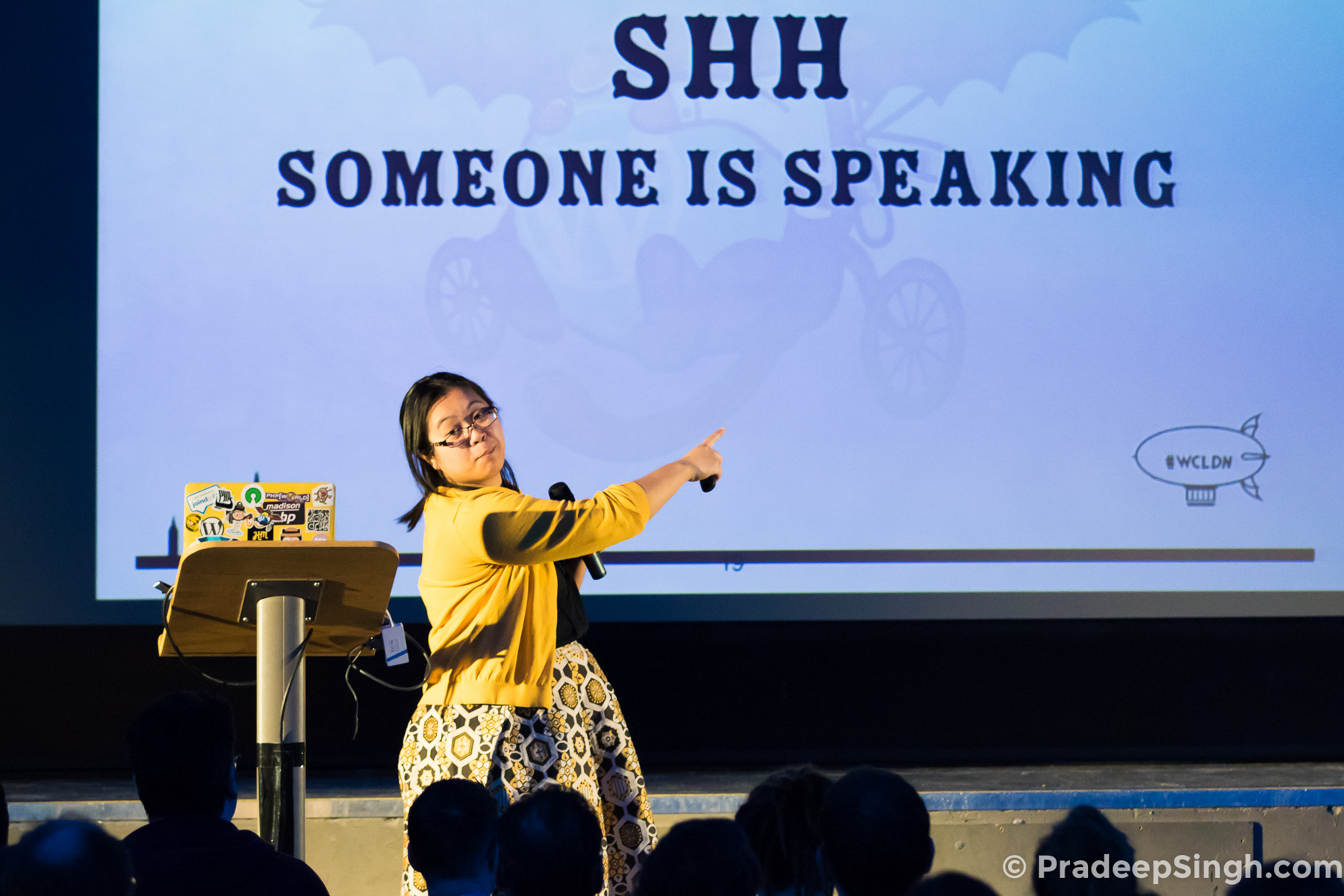We hope you are considering submitting a talk to WordCamp London 2017, and if you’ve ever wondered what our speaker selection process is – you’ve arrived at the right place!
At WordCamp London, we do our best to give everyone who applies a chance to speak. We do this because we want to support a diversity of speakers and attendees at our event. We do this in very specific ways which we’ve detailed below. Here’s a quick summary of the contents in this article:
Call for Topics
Before we announce the Call for Speakers, we do a Call for Topics where we invite the community to let us know what topics they’d like covered at the next event. We ensure everyone on the speaker selection panel (which includes everyone on the organising team) has read through these before the speaker selection is made, and we take them into consideration when selecting speakers and putting together the schedule.
Announcing the Call for Speakers
We announce the Call for Speakers alongside additional posts to encourage people from all walks of life to submit a presentation for WordCamp London. We try and answer as many questions about what it takes to speak at a WordCamp with our Speakers FAQ, particularly encouraging first time speakers and people who may otherwise feel intimidated about speaking. We also provide an example of a successful submission with Be Inspired: A Successful Submission to our Call for Papers post.
We reach out to the community directly through local user groups, encouraging people to apply (irrespective of experience, topic, gender etc) and run speaker submission sessions online for anyone who’d like to know more about applying to speak. We do this because we love to encourage as many different people as possible to share their lessons learnt working with WordPress, and their experiences with other topics that affect the WordPress community.
In the past, we’ve also supported people before the submission process, by openly encouraging them to apply even if they are unsure if they should. 🙂

Speaker Selection Process
Applications are received directly into our website dashboard. Here, our Speakers team are tasked with collating and anonymising all submissions into a spreadsheet. We anonymise submissions by hiding personal details about the speaker (name, contact, company and so on) to leave the talk title, abstract, session format and intended audience.
Our speaker selection panel is then given access to the spreadsheet and we do a round of blind voting, with each person marking each session out of 5. The submissions are then ordered from the highest mean score to the lowest.
The Speakers team are then asked to re-add the removed personal information for each submissions and we arrange a team meeting to review the results. At this stage we are identifying multiple talks by the same person, or submissions on the same topic, so we can better create a diverse schedule.
We take a lot of things into consideration when we select presentations for the schedule; we look at a speaker’s location, speaking experience and the presentation’s perspective. A diverse and fair schedule includes sessions for a variety of experience and skill levels, ensuring there are talks for WordPress professionals and hobbyists. At this point we may also consider expanding the schedule if we feel we need to include a greater number of presentations.

Once sessions have been selected and agreed on, we email all applicants to inform them of the result of their application. We find it hard to inform speakers that their session hasn’t been successful; and always encourage people to apply the following year, or to apply to speak at local meet-ups.
For speakers that have been accepted but are still unsure about speaking (for whatever reason) we offer to jump on calls and make ourselves available to answer any questions. We know that talking on stage in front of a crowd of people is one of the scariest thing most of us will have to do in our professional lives. Some speakers may also have timing clashes, or childcare they need to arrange; being able to know all these situations in advance allows us to arrange the right support for our speakers and ensure everyone who has been invited is able to come along.
We then put together the schedule and review it with the entire team – and then publish it and celebrate with all our speakers and our community! 🙂
Supporting Speakers
Speaker Mentorships
Once a speaker is accepted, they’ll be asked if they would like to participate in a mentorship programme where they are paired with our wonderful volunteer mentors. These people have spoken at WordCamps and conferences before, so they are able to provide advice, feedback and support.
We are flexible in how we offer mentorships but we try and provide priority support for first-time speakers; we love having new speakers at WordCamp London and feel strongly about encouraging first-time submissions. And we do still offer mentorships for people who are not first-time speakers too!
All our mentors are volunteers and receive a complimentary ticket to attend the conference and be there on the day to provide moral support.
Speakers Info Pack
Our Speakers team also put together a Speakers Info Pack with all the information we feel our speakers will need before and during the event. Take a look at our 2016 Speakers Info Pack here.
Virtual Green Room
We have a channel in our representative country WordPress Slack team where all speakers are invited to ask questions, speak to each other and have a direct line to the organising team.
Viewing the Venue and Stage
WordCamp London runs a Contributor Day the day before the main conference. We invite all speakers to come and see the venue and stages at times when the university schedule allows. We also try and give speakers the time to check their slides on the screens and familiarise themselves with the projector quality and setup.
The evening before the conference (on Contributor Day) we also host a Volunteers Dinner where we invite all our organisers, MCs, mentors, speakers, and volunteer cavalry to get together and have a great evening getting to know each other and kicking-off the event. This is also a great opportunity for speakers to meet their MCs, room monitors, time keepers and microphone runners and say hello before going on stage.

Green Room
We meet speakers on the day of their session at reception and invite them to use the Green Room to store bags, relax and prepare for their presentation. This gives speakers space and calm to collect their thoughts and get ready to go on stage.
Going on Stage
We schedule enough time between sessions to ensure the Audio Visual team can setup speakers with microphones, and set up their slides. We encourage all speakers to arrive at their stages in good time to ensure they are not rushing. 🙂
Room monitors, time keepers and microphone runners will usher people to their seats, ensure doors are managed, provide countdown times for speakers and help during the question and answer section. All speakers need to do is relax and deliver their presentation.

At WordCamp London we try and make everything as painless as possible in order to ensure everyone can speak, attend, sponsor, volunteer and organise. We believe that by being open with our aims, expectations and processes, we can help create an event that is inclusive and accessible for everyone.
If you’ve read this far – good on you 😀 We hope this has encouraged you to apply to speak! If you have any questions, or just want to chat, find us at london@wordcamp.org.